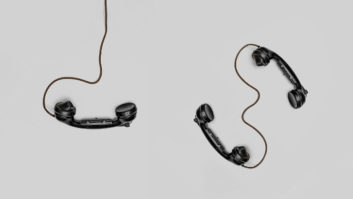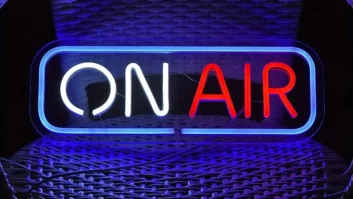On-air Missteps to Avoid
Apr 1, 2014 8:30 AM, By Lee Petro
In the March 2014 FCC Update, I discussed recent forfeiture actions taken by the FCC’s Enforcement Bureau regarding tower issues and the proper maintenance of a station’s public inspection file. This month, I’ll review several on-air missteps that can lead to sizable forfeitures.
Telephone Broadcast Rule
A recent trip took me out of the office during the morning hours. The hosts where doing a Valentine’s Day promotion where they were trying to set up dates by calling unsuspecting “targets” of a caller’s affection. They would get the phone number of the target from the caller, and then call the third-party to see if they would like to go to a dinner sponsored by the radio station with the caller. The unsuspecting target would almost always be surprised by the call from the station, and, in some cases, decline the date.
What struck me was that none of the “targets” were advised beforehand that they would be on the radio, nor were they given an opportunity to decline. The FCC’s rules require that the broadcaster inform the party of the call beforehand that it intends to broadcast the conversation, and provide the party the opportunity to decline before the conversation on-air takes place. Furthermore, the FCC will not accept the fact that the disclosure was made after the call was aired, as the FCC’s primary focus is ensuring that a party has prior notice. Even if the hosts had contacted the third parties ahead of time, and recorded the conversation, the mere act of pressing the “record” button before giving the call recipient the opportunity to decline to be recorded is sufficient grounds for the FCC to issue a forfeiture.
Sponsorship ID
All sponsored content on a station (advertisements, political spots and/or longer form content) must clearly identify that the material was sponsored and on whose behalf the consideration was supplied. In practical terms, this means that, for all content broadcast on a station for which the station receives consideration from a third party, the third party needs to be clearly identified. It is critical for someone at the station to be screening all advertisements to make sure they include proper sponsorship identification. Lack of sponsorship ID often comes up in the context of political and issue advertisements, but this requirement applies to all sponsored content on stations. In a recent case, the FCC upheld a $44,000 forfeiture against a radio broadcaster that aired sponsored programming without adequately identifying the source of the content. The FCC looked at the format of the content and the frequency of the advertisements as a justification for imposing the forfeiture.
EAS Tones
Recently, the FCC fined Turner Broadcasting System $200,000 for broadcasting a simulation of the EAS attention signal outside of an actual emergency or EAS test. The EAS tones were included in a Best Buy advertisement and were reportedly broadcast 14 times in a six-day period. This incident serves as another reminder of how seriously the FCC takes misuse of EAS tones. Turner had argued that the EAS tones that were broadcast did not include actual EAS code (meaning that the broadcast would probably not cause other monitoring stations to pick up a false EAS alert), but the FCC did not view that as a mitigating factor. The basic rule with EAS tones or codes is simple: They should never be broadcast outside of a situation where a legitimate EAS event (a test or actual alert) is taking place.
By making sure that procedures are in place, licensees can take steps to help their stations stay out of trouble. First, proper education of your staff should take place so they are aware that these rules exist. Second, it is important to have someone with knowledge of these rules conduct frequent spot checks of the aired content to see if there are any violations. These checks do not have to be completed by just one person, and the more people at the station you have looking out for these issues, the better.
FCC Dateline

April 2014: Stations in Delaware and Pennsylvania continue running License Renewal Post-Filing Announcements on April 16, May 1 and 16. All stations must place First Quarter 2014 Issues/Programs list in public file by April 10, 2014.
Petro is of counsel at Drinker Biddle & Reath, LLP. Email: [email protected].
April 2014
Update on transmitters, a new production vehicle for the Motor Racing Network, studio furniture, new products at the 2014 NAB Show and more….












